
Oh no! I've broken the tip of my soldering iron. This wishlist is coming just in the nick of time!
If you're shopping around for a gift for an electrical engineer or maker, look no further! Soldering is something pretty much every engineer does, and the better the tools, the happier they'll be! In this wishlist, we'll focus on through-hole soldering.
Soldering Iron

A soldering iron is used to melt the solder that joins the metal pieces together. A soldering iron with adjustable temperature is a useful feature, because component manufacturers will often specify a maximum temperature (along with a duration). An adjustable temperature lets you set the max temperature and not have to worry about damaging the component.
Soldering Iron Base
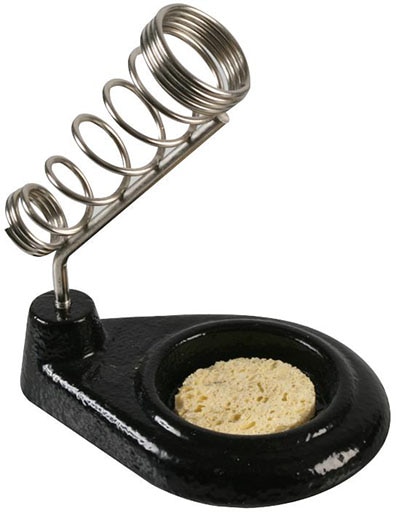
A soldering iron based includes a stand and a sponge for cleaning the tip of the soldering iron.
Soldering Station
For engineers who will do a lot of soldering, it might be worthwhile to invest in a good soldering station.

Soldering Iron Tip
Ah yes, this is what I was looking for! Tips of soldering irons don't last forever, but replacements are available in a variety of sizes.


Solder

Flux

Flux is a cleaning agent that removes oxidation from the metals that will be joined.
Desoldering
If you have to repair a circuit, you'll need desoldering tools. Here are some of the most common:
Desoldering Braid (Wick)

Wicks are used to absorbing solder after it's been heated.
Desoldering Pump
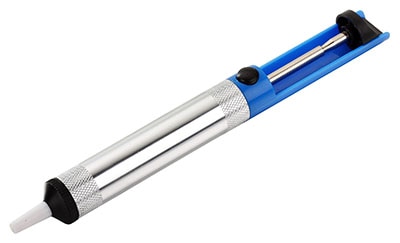
You can also use a pump to suck the melted solder in.
Desoldering Iron

If you need to do a lot of desoldering, it's well worth it to get yourself a desoldering iron, which both melts and removes the solder.
Desoldering Rework Station
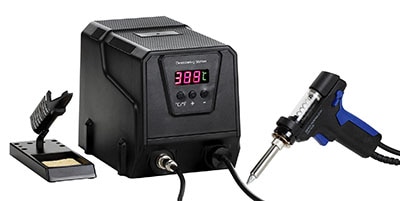
A desoldering station lets you adjust the temperature of the desoldering iron, and comes with the desoldering iron, cleaning tools, and nozzles of various sizes.
Soldering Iron Tip Cleaner, Brass Wool
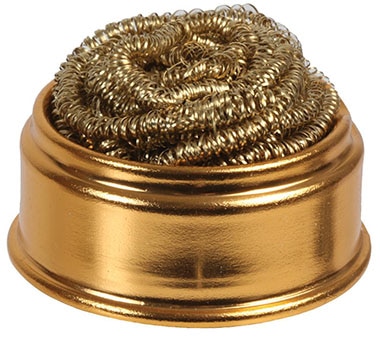
Buy now
Fume Extractor
The fumes that are released when soldering are pretty nasty. Every bench should have a fume extractor to prevent you from breathing them in.


Pliers

To make sure you don't burn your fingers, grab a pair of pliers to hold the wire as you solder.
Wire Stripper/Cutter
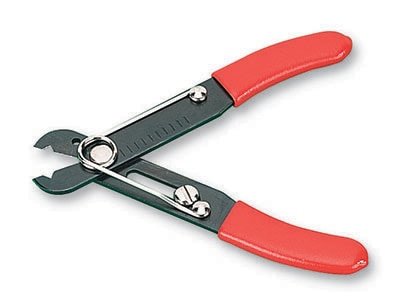
Wire strippers are a must have when soldering, although I have a friend who is surprisingly good at stripping wires with his teeth.
Buy now
Helping Hands
Helping hands hold the components in place while you solder, helping to prevent soldering iron accidents.
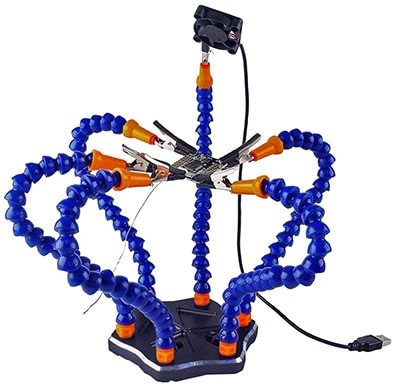
For smaller components, a magnifier is very helpful.


Top Comments